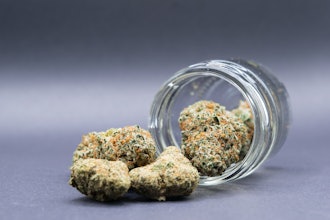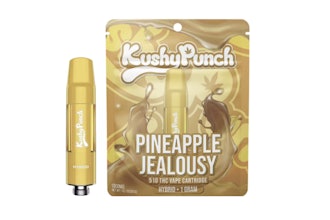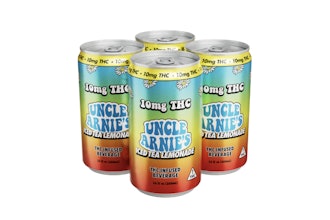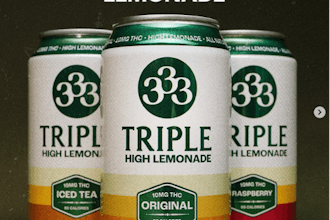
The manufacturing industry has a responsibility to use sustainable, eco-friendly practices whenever possible. However, these methods aren’t always the most cost-effective and often require making difficult choices between waste, energy production and other dimensions of the manufacturing process.
Hemp is easy to grow, reduces pollution and is cost-effective with the proper infrastructure. My time in the cannabis industry has cemented my opinion that hemp is the way forward to a more sustainable manufacturing industry for many reasons. Below, I’ve shared a brief history of industrial hemp and five reasons I’m bullish about hemp being central to the future of sustainable manufacturing.
A Brief History of Hemp in Manufacturing
Hemp has an exceptionally long history in manufacturing with evidence of cultivation in China as early as 2800 BCE. Through trade, hemp made its way to the Americas by the 1600s.
In the Americas, hemp was used to manufacture everything from textiles to building materials. The plant remained widely used until 1937, when the United States government passed the Marihuana Tax Act. The government eventually repealed and replaced the Marihuana Tax Act with the Controlled Substances Act in 1970, cementing the vilification of cannabis and the stigma around everything associated with it, including industrial hemp.
However, industrial hemp has recently become more accepted and accessible. The 2018 Farm Bill legalized hemp on a federal level, allowing it to be freely farmed and used in manufacturing. Now, I hope to see this plant used to its full potential as a sustainable manufacturing compound.
1. Hemp Has Countless Uses
First and foremost, agricultural hemp has tens of thousands of uses, if not more. With increased access, manufacturers and scientists will discover further uses for the hemp plant. However, several current applications stand out in today’s manufacturing landscape.
For example, hemp is an excellent material for nearly every type of paper, from sturdy hemp paperboard to everyday hemp printer paper. Manufacturers can even use hemp to create natural, plant-based bioplastics. Finally, textile manufacturers can process hemp into various materials, from sturdy canvas-like textiles to lightweight, silky fabric.
2. Hemp is a Sustainable Manufacturing Material
In 2021, the world used more than 417 million tons of paper and paperboard; there is a massive demand for paper products. Hemp can meet that demand and place less pressure on the environment than conventional paper-making processes.
It takes years for a tree to grow to maturity. A crop of hemp, however, typically matures in less than five months; hemp can provide paper manufacturers with a faster turnaround time and a more consistent, reliable supply of material.
Hemp also uses space much more efficiently than trees meant for paper. The same area can produce four times more hemp fiber than wood pulp. Paper manufacturers concerned about land use, available space and production efficiency would be well-advised to choose hemp over conventional wood for increased yield and profits.
3. Hemp Paper Manufacturing Does Not Contribute to Deforestation
Though most deforestation is due to agriculture, paper production also contributes.
Deforestation is responsible for about 15% of the world’s greenhouse gas emissions, and the loss of ancient forests also means a loss of biodiversity and carbon sinks. The destruction of these forests is devastating to the global environment; hemp provides paper manufacturers with a tree-free alternative.
Hemp can even help to combat some of the effects of deforestation. Hemp plants are twice as effective at carbon sequestration as trees, and as mentioned, they mature more quickly and can be grown in smaller areas. Industrial hemp, therefore, can remove excess carbon dioxide from the atmosphere and provide an alternative to cutting down trees.
4. Biodegradable Hemp Plastic Cuts Down on Pollution
Hemp also offers an excellent alternative to conventional petroleum-based plastics.
The world produces upwards of 350 million tons of plastic waste yearly, a quantity experts expect to increase. Only about 5% of plastic is recycled; the rest ends up in landfills or as environmental pollution. In any form, this plastic is harmful to the environment. Over time, however, plastic breaks down into microplastics that make their way into nearly everything and harm the planet, animals and humans.
Hemp offers a solution. Hemp plastic manufacturers can create products with 100% natural materials, avoiding harmful chemicals often used in conventional plastic manufacturing. Plastic made from hemp can also be fully biodegradable, reducing plastic pollution and resulting microplastics.
Though hemp plastic is still a niche material, it will become more affordable and accessible as it becomes more widespread. Hemp plastic demonstrates that what’s good for the environment is good for us and our businesses. More consumers than ever are interested in sustainable manufactured materials like hemp plastic, so biobased plastic can potentially be a huge selling point for manufacturers and retailers alike.
5. Manufacture Durable Goods with Hemp Fiber
Hemp is versatile and sustainable — and it’s also extremely strong. Hemp paper is much stronger and longer-lasting than paper made from wood pulp, and hemp plastics are more robust and stiffer than conventional plastics. Even hemp fabric is one of the most durable natural textiles available today.
Manufacturers can create sturdy, high-quality materials and products using hemp fiber, opening the doors to higher-quality goods and more novel applications. Henry Ford famously built a car almost entirely out of hemp in the 1940s and demonstrated its strength by striking it with an ax; what can we make with hemp today using modern technology?
As hemp becomes less stigmatized and more accessible, I believe it has a bright future — especially in partnership with the sustainable manufacturing industry. Hemp provides manufacturers a path toward a more sustainable future in manufacturing, the economy, and the environment. My company has worked with hemp for years, and I am excited to see how other manufacturers incorporate hemp into their products and processes.























